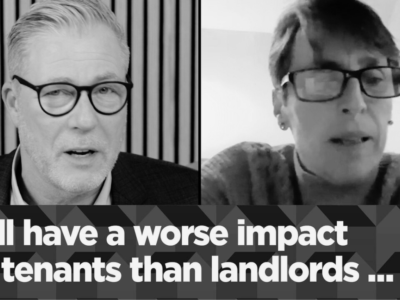The government has targeted property as a way of helping the country to recover from the Covid-19 pandemic, according to financial services firm The UK Adviser Group.
The Group argues that the current market conditions appear to have been designed to deliberately boost the market and to appeal to the innate British desire for homeownership, with both an ongoing stamp duty holiday and the recently introduced 95% mortgage guarantee scheme keeping the market buoyant.
This isn’t surprising, given the housing market’s huge importance to the economy as both a multiplier and a generator of significant income.
According to a recent report from property experts Savills, the value of housing stock in the UK increased by 5.3% year-on-year to a record of £7.6 trillion in 2020. Even in spite of the challenges posed by Covid and Brexit, the £380 billion rise last year was the most since 2015, the data found.
The government needs the housing market to be functioning well, and with strong sentiment from buyers, sellers, landlords, investors and tenants alike, as it’s a huge asset with a considerable combined value and a significant source of revenue for the Treasury each year.
Government keeps momentum high
A few months before the stamp duty holiday was introduced, the housing market was already experiencing a remarkable boom as it reopened in May 2020 from a near-two month lockdown.
This led to unprecedented demand as people already in the pipeline restarted their transactions and many more people, their priorities changed by the lockdown, sought new homes with more space, gardens and home offices.
“There was already a significant bounce post-lockdown, following on from the post-election Boris bounce seen at the start of 2020, but this was supercharged and sustained by the stamp duty holiday,” Maxim Cohen, Group Chief Executive, said.
In July 2020, as part of his Summer Statement, Chancellor Rishi Sunak announced a stamp duty holiday on all homes worth up to £500,000, saying that 90% of people wouldn’t pay any stamp duty on their homes while the holiday was in place.
“Since that point, the stamp duty holiday has helped to keep demand incredibly high – with an unprecedented number of transactions working their way through the pipeline and conveyancers, agents, surveyors and removals firms having to work double to keep up with this motoring demand,” Cohen added.
“While the original plan was for the stamp duty holiday to end on March 31, public, media and political pressure for an extension was so massive that the government had no choice but to act.”
In its current format, the stamp duty holiday will now continue until June 30, before the nil rate threshold falls to £250,000 until September 30 2021, when the holiday is due to end.
As well as extending the stamp duty holiday, the government also used the most recent Budget to announce a 95% mortgage guarantee scheme to bring back higher loan-to-value lending to the high street.
“Understandably, during the worst of the Covid crisis, lenders were reluctant and hesitant to offer high loan-to-value mortgages and, as a result, 95% mortgages virtually disappeared and 90% mortgages were in much shorter supply,” Cohen continued.
“But the announcement of a government-backed mortgage scheme – which provides various reassurances to lenders and borrowers alike – has helped to give high-street lenders the confidence to offer low-deposit mortgages once again.”
Although it is likely to be first-time buyers who principally use the scheme, it is not limited to this demographic alone and there are no stipulations on property type, unlike some other government schemes.
On April 19, the scheme was officially launched to help first-time buyers or current homeowners secure a mortgage with just a 5% deposit on properties worth up to £600,000.
The government says it will offer lenders the guarantee they need to provide mortgages that cover the other 95%, subject to the usual affordability checks.
Lenders on high streets across the country are now offering the new scheme, with Lloyds, Santander, Barclays, HSBC and NatWest launching mortgages in April and Virgin Money getting involved early in May. Separately, Nationwide has relaunched 95% LTV mortgages, but not as part of the government’s guarantee scheme, suggesting that confidence among lenders is returning of its own accord.
“The scheme is intended as a temporary measure – opening for new mortgage applications until December 2022 – but it is clearly designed as another way of keeping strong sentiment and momentum in the market by making it easier for people to get on the ladder with less money,” Cohen claimed.
“By taking away the risks attached with higher LTV lending, the government has encouraged lenders to get involved, while others like Nationwide have now stepped in with their own 95% mortgage – separate from the scheme – with their lowest rates yet.”
With the economy set to recover fast as society opens up again, it seems certain that housing will have a key role to play in the recovery.
“We are a nation of owners of Britain, with people utilising houses for extra security, whether that be to fund their retirement, fund a business or a host of other reasons.”
“It’s therefore no surprise to see the government prioritise housing as we ease out of lockdown and try to get people spending big in the economy again,” Cohen concluded.

























Comments